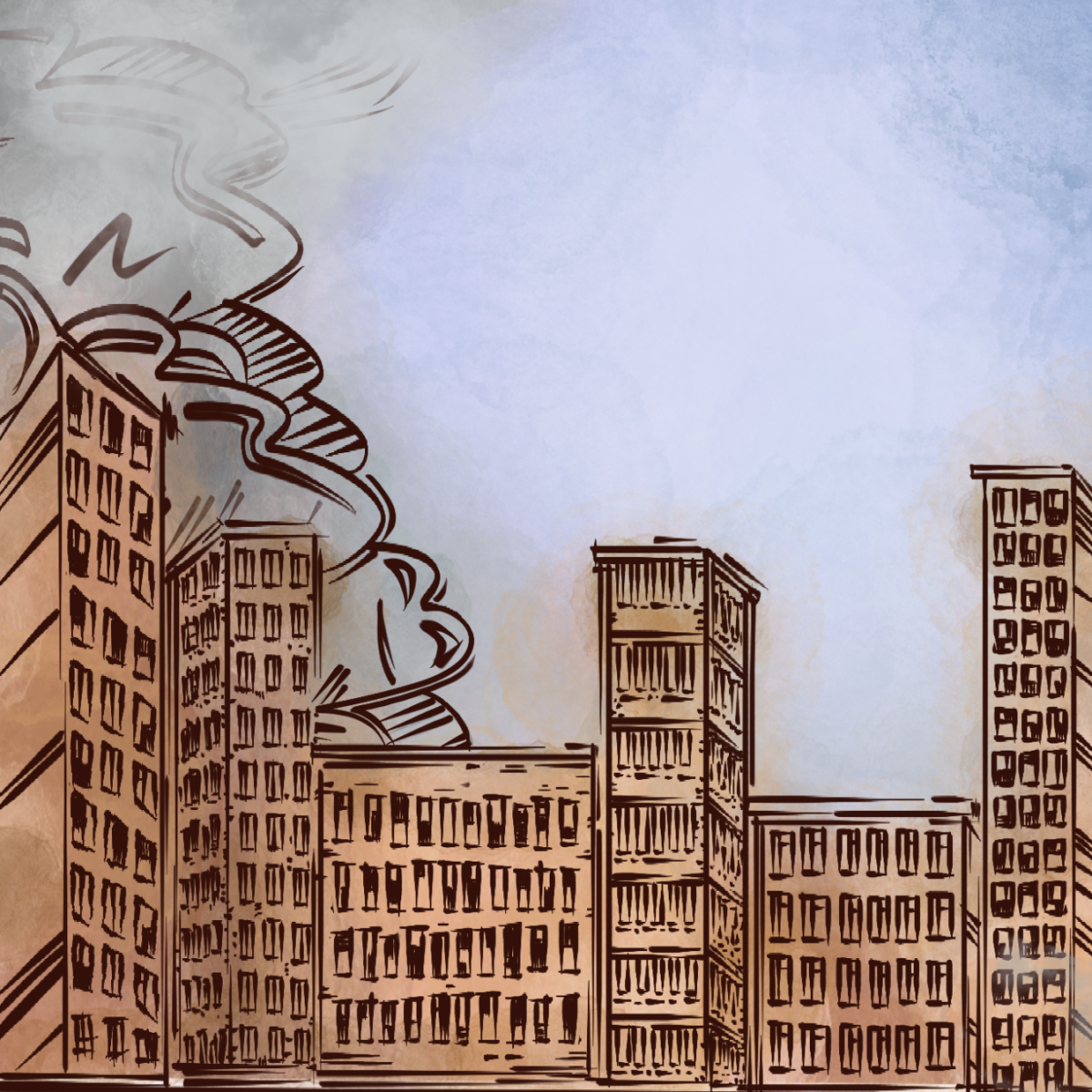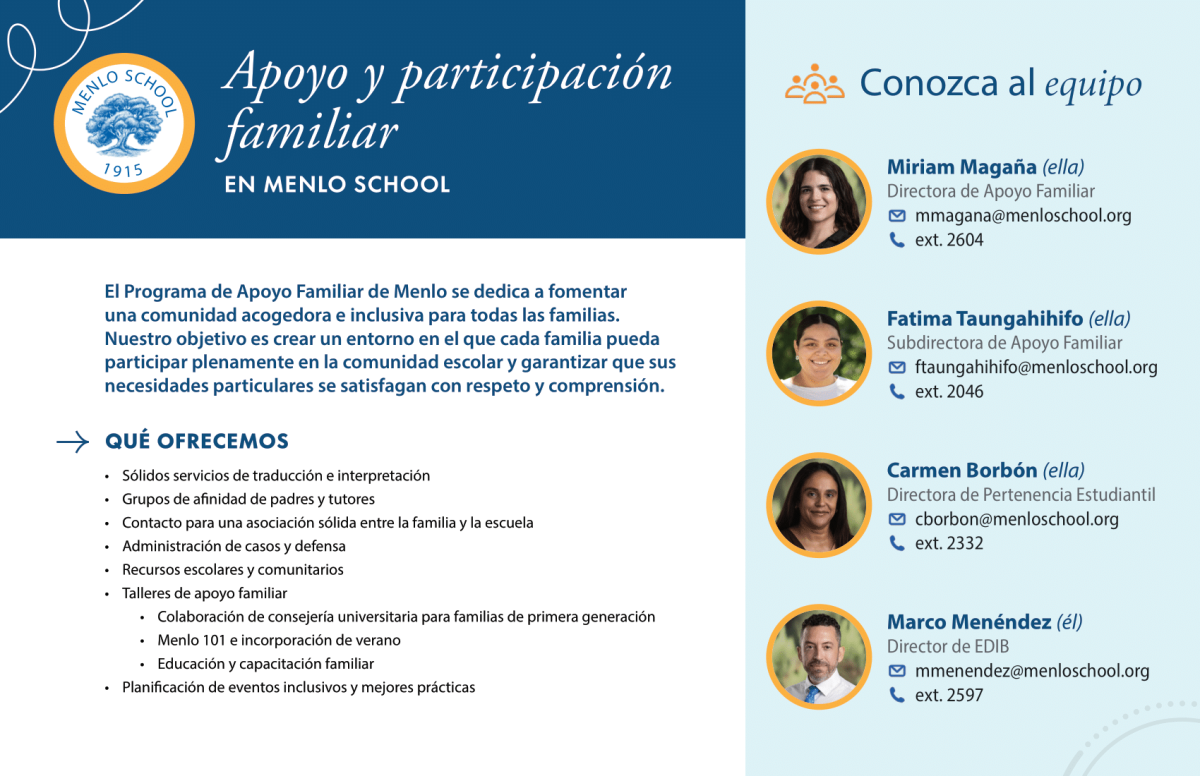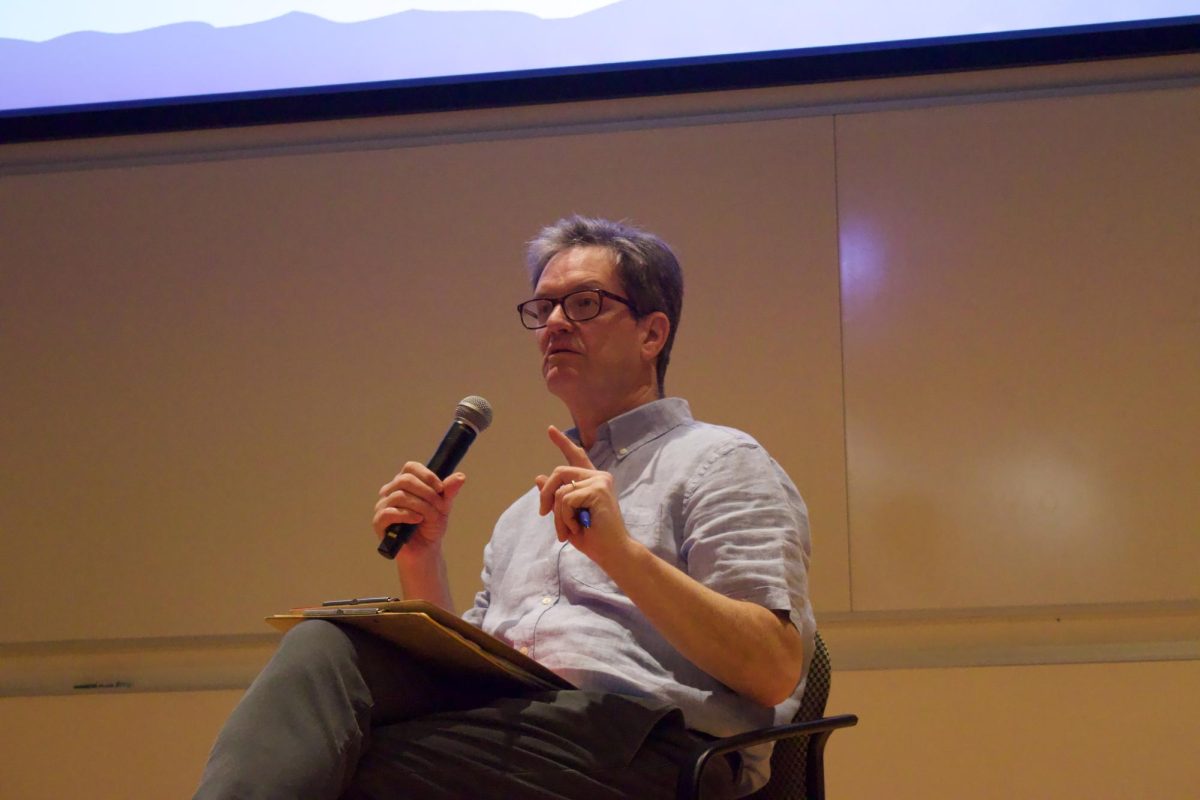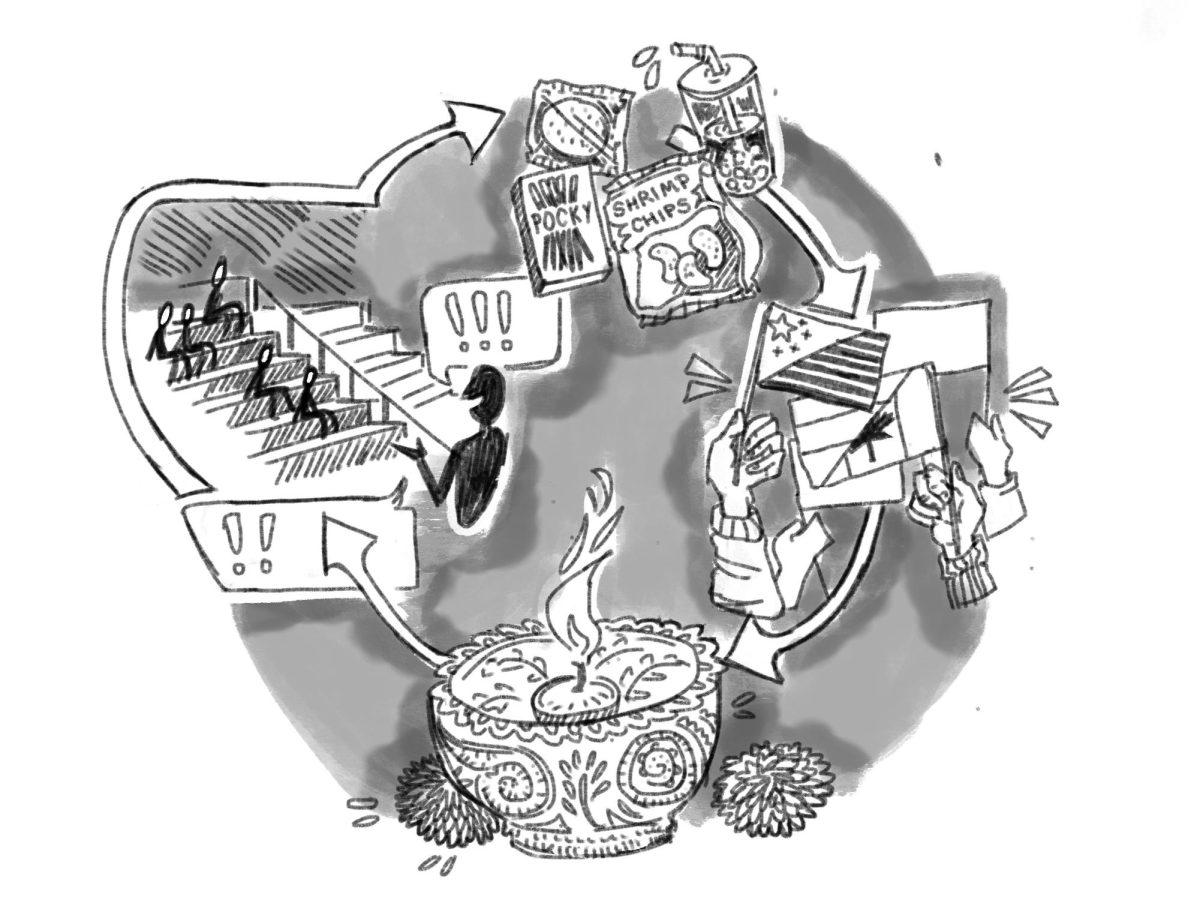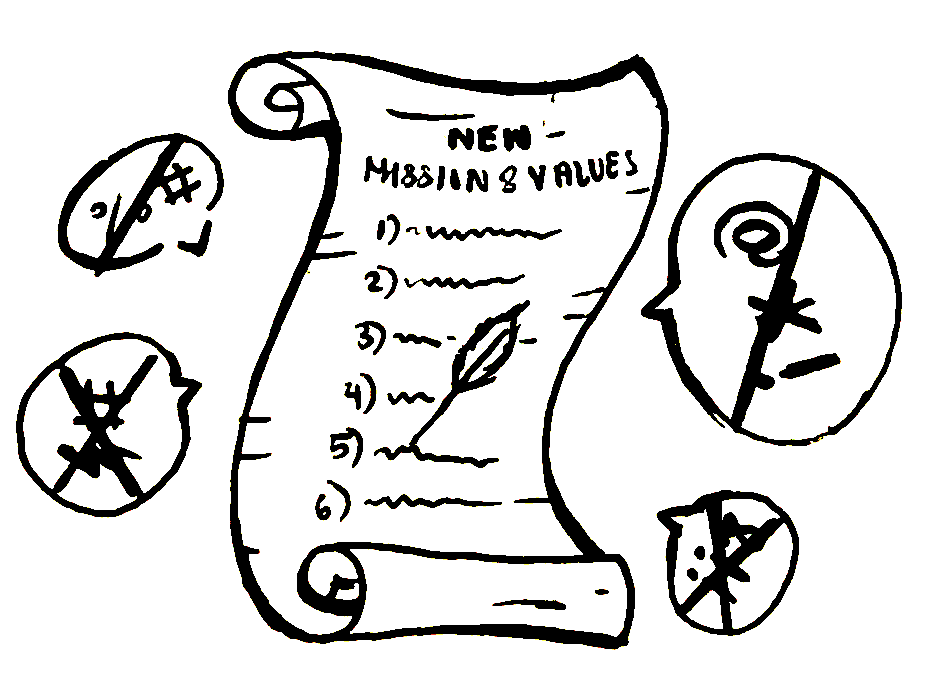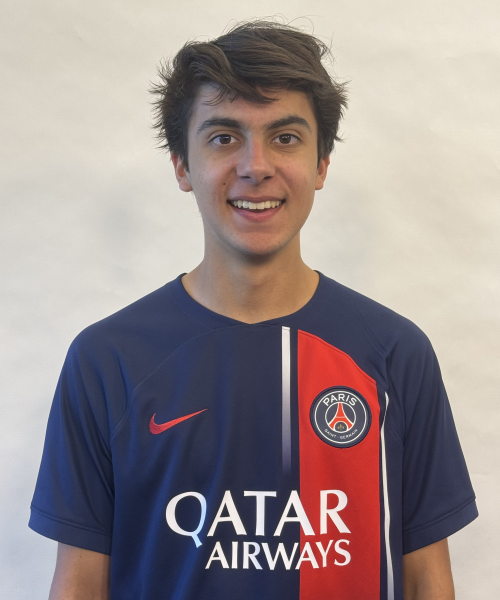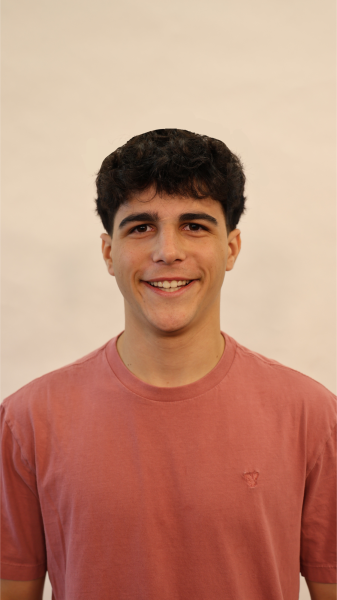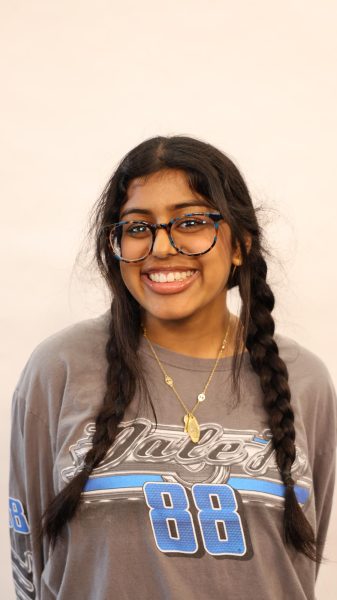“I wanna go.” Junior Ari Kaufman heard her older brother’s words through the phone on her drive home and was confused. She pulled over and turned on her phone. “I have texts from my camp friends; I’m on Instagram, and I look and I’m just like, ‘What the hell?’”
As Kaufman began to grasp what was going on, her brother kept talking. He felt guilty, Kaufman said, for being in the U.S. when his friends were in Israel. He told her he wanted to enlist in the Israeli military. “I was terrified,” Kaufman said. “I was like, ‘Oh my God, is my brother gonna go to war?’”
Menlo Community Reels from Shock of War
When Hamas — the Palestinian militant organization that governs the Gaza Strip and that is considered a terrorist group by many Western governments — launched an attack against Israel on Oct. 7, 2023, it caught the world by surprise and rocked the lives of many in the Menlo community with ties to the region. While Hamas wasn’t quiet about its vehement opposition to the State of Israel, Israel’s strong military advantage and extensive security apparatus were believed to rule out the possibility of an attack.
That morning, senior Yasin Abdulkariem woke up around 11:30 a.m. and was overwhelmed by the news. “It was all in my face,” he said. “I think we had three different TVs on — all playing the same thing.”
Like Abdulkariem, junior Melanie Goldberg was going about her daily life, doing work for her debate team, when her mother came into her room “shaking” with the news. “I was kind of in shock,” she said. “Like, ‘how is this possible?’”
For some, the outbreak of war meant imminent danger to friends and loved ones. “I was more so worried for my family back home at first before I actually knew what was going on,” Abdulkariem, whose Palestinian family lives in the West Bank, said in an interview in January.
More than 1,200 people were killed in Hamas’ initial attack on Oct. 7, including 364 civilians at a music festival near the Gaza Strip. “My uncle’s family friend’s son was at the [Re’im music festival], and there’s a video of his arm being blown off and being taken as a hostage by Hamas,” Goldberg said.
Freshman Noa Levav said her brother also knew many of those killed at the festival. She, too, knows people in Israel who are grieving the loss of their friends. “Every one of my friends [in Israel] knows somebody who was either taken or killed or beat or something like that,” Levav said.
Kaufman said she had been counseling her friends whose loved ones were among the kidnapped. “I have friends who are like, ‘Yeah, dude, my cousin is held hostage. I don’t know what to do,” she said. “Thinking about that when I’m in, like, math is not great.”
As the world was still reeling from the shock of the attack by Hamas, Israeli Prime Minister Benjamin Netanyahu declared that his country was “at war.” It has since been the goal of the Israeli government to completely destroy Hamas and rescue the hundreds of hostages taken on Oct. 7. Israel’s ambitions have manifested in a brutal military campaign in the Gaza Strip: air strikes and a ground invasion have so far left over 30,000 Palestinians in Gaza dead and millions more displaced. The Israeli military says over 10,000 of these were Hamas fighters.
As Israel takes actions in Gaza that some call self-defense, it faces allegations of war crimes from rights groups and countries like South Africa, which is currently litigating a case of genocide against Israel at the International Court of Justice. International concern for Palestinians in Gaza has manifested in significant support for ceasefire motions at the United Nations.
Israel and its supporters often respond to these accusations by saying that Israel’s military takes steps to minimize civilian casualties, such as by distributing warnings about imminent bombings to nearby residents. They also claim that Hamas uses Palestinians as human shields.
A Muslim community member at Menlo, who will be identified as Rory, explained that they couldn’t look at the images coming from Gaza at first because of their violent nature. “Now, I’m sad to say I don’t think I will ever be desensitized to the horrific violence depicted in these images,” Rory wrote in correspondence with The Coat of Arms. “Every day, I open my feed to babies and innocent children standing alone next to their dead family members, with blood all over them and gruesome injuries as a result of the airstrikes, bombings, and attacks in Gaza.”
“I feel guilty that I can’t do more to help them,” they added. “I feel like my community is under attack in Gaza and across the globe.”
Kaufman said she thinks that more consideration can be given to those innocent Palestinian lives in Israeli military planning. But with that comes a feeling among many, including Kaufman, that Israel must defend itself and deter future terrorism. “I don’t agree a ceasefire is a solution,” Kaufman said in an interview in December.
“I am all for criticizing the Israeli military for not taking enough steps to ensure the safety of some Palestinian citizens,” Kaufman added. “But a ceasefire will only ever be respected by one side, and I don’t think it’s fair for the world to say Israel is awful because they didn’t want to negotiate with terrorists.”
Does Menlo Feel Safe for Students?
Most Jewish community members interviewed for this story said they felt supported by the Menlo community during this time. “I’ve had a couple of friends reach out to me, and make sure that my family is okay and that I’m okay,” junior Ella Litsur said. “That’s made me feel really safe.”
Additionally, Head of School Than Healy said he’s proud of the way Menlo has reacted in the wake of the conflict. “Where other communities have really divided, this is a place that’s rallied together,” he said. “I see students taking care of each other. I see adults rallying for the students. I see thoughtful conversation.”
There are members of the community who see things differently. Rory believes that the issue has been “silenced,” and they have avoided talking about it except with a few teachers and friends who share their identity. “Because there is significantly more representation for one side, it’s hard to feel supported or even comfortable speaking up,” Rory wrote. “I worry anything I say will be twisted or blown out of proportion.”
Abdulkariem said that he’s experienced fellow students trying to antagonize him by talking about the conflict. “Some people want to joke about it, but I don’t really think it’s like a joking matter,” he said.
On the other hand, Abdulkariem added that he appreciated the few teachers that reached out to him as the war unfolded. “I’m super grateful for and thankful that they’re actually thinking about me.”
On Oct. 10, in an effort to make impacted community members feel supported, Menlo sent out a communication from Healy on the events unfolding. “We are deeply saddened by the tremendous loss of life and the ongoing violence and devastation in Israel and Gaza,” the email to the school community said.
Jackson Deutch, senior and co-leader of the Menlo Jewish affinity group, recalled that the release of this first communication from the school was one of the few times he felt tension about the conflict in the Menlo community. “I know some people were not happy with parts of the statement,” Deutch said. “While the school wasn’t going to please everyone and it’s hard to get right, it was a courageous step that maintained an incredibly respectful tone.”
In an interview with The Coat of Arms three months after the email went out, Healy explained that he had “about a dozen” discussions with families about the statement after its release. “This is a topic that, rightfully, people feel really strongly about, and when we sent that communication out, those feelings were very, very raw,” he said. “I think in moments where there’s a lot of fear and pain, especially in our world today, people want to know, ‘Are you gonna be there for me?’”
Healy said he stood by the statement sent out, but he understood the sometimes negative reactions from community members. When asked if there was anything he would change about the statement, Healy noted that an emphasis was placed on the lives of innocent children. “I think we could have been also clearer about where we stand on the slaughter of innocents [more generally],” Healy said. “That might have helped some families sort of feel more seen and known without choosing sides in a conflict.”
While Rory said they appreciated the initial communication, they hoped that the school would continue to speak up about the climbing death toll. “It’s been complete radio silence since,” Rory said in an interview with The Coat of Arms in February. “A lot of people have forgot that it’s happening.”
Upper School Director John Schafer hopes to change that. He and fellow history teachers have hosted four teach-ins to discuss the current war and the complex history that has prolonged the Israeli-Palestinian conflict for decades. Although Rory said the teach-ins didn’t provide much new information for them, Rory and Deutch both welcomed the attempt to educate people about the issue in an unbiased manner.
“It was interesting to hear, you know, faculty that I respect at Menlo talking about the issue,” Deutch said.
A feature of some of these teach-ins has been guest speakers, the first of which saw alum Lisa Biton (‘03) speak about her experience living and teaching in Israel during the war. However, since there has yet to be a Palestinian, Arab or Muslim speaker, Rory is concerned that the audience will form their opinions having only heard this perspective.
Schafer said he understands these concerns and is trying to get other perspectives, emailing alums, professors and student groups at Stanford. He’s also tapped history teachers’ contacts, which has so far proved unsuccessful. “I wish I had been able to get [a speaker with another perspective by now],” he said in an interview in March. “There will be one.”
He added that he hadn’t reached out to Biton; rather, she emailed him letting him know she would be in town and would be willing to talk to students about her experience. “I had the option of saying ‘no’ — in which case, we would never get her because she’s going to go back to Israel — or get her and work hard to get other perspectives,” Schafer said.
Additionally, Schafer vetted Biton over Zoom and concluded that she would be “thoughtful” in speaking. “I wouldn’t platform someone who’s gonna say inflammatory crazy things,” he said.
Schafer added that a one-sided speaker wouldn’t be productive for his goal. “I’m not trying to validate [people’s beliefs]; I’m trying to educate.”
However, Schafer acknowledged that only having one perspective at that event could look biased. “But in the course of what I hope [will] be many teach-ins, [we will have gotten] different perspectives,” he said, noting that he hopes to host seven events in total. “I just want to provide as many opportunities as possible for students to learn, a safe place to ask questions and to hear multiple perspectives.”
Does the World Feel Safe for Students?
Goldberg, who said she supports a two-state solution, explained that she was initially appalled by the people who supported the terrorist attacks on Oct. 7. “I have family and friends that told me that the initial Hamas attacks were analogous to the slaves’ revolt in Virginia,” she said in an interview in January.
She added that her perspective changed after her initial reaction to the war’s onset. “I just kind of realized that I probably shouldn’t have been this shocked because there is a lot of hatred towards Jews,” Goldberg said. “And the Oct. 7 attack was kind of the epitome of that.”
Kaufman added that claims of antisemitism are too often disregarded. “People on social media keep on trying to tell Jews what is and what isn’t antisemitism, and it’s very frustrating when it doesn’t feel as though we can define what is hate to us,” she said.
Having seen the sometimes deadly attacks on both Jewish and Muslim Americans in stateside cities and college campuses, some students have hidden their identities in public settings. “I would never wish not to be Jewish, but in the time we’re in right now, in some other countries, they wouldn’t accept me as one, and that’s a frightening thing to think about,” Levav said in an interview in January.
Rory explained that there are places where they feel comfortable speaking about the issue –– though for them, Menlo is not one of them. “Although it’s easy to question and doubt myself in a geographic area where few people share my viewpoints, being with members of my community grounds me and reminds me that I am not alone in my beliefs,” Rory wrote. “I feel secure in knowing that.”
Members of both the Jewish and Muslim communities interviewed for this article expressed an increasing distrust of mainstream media sources. Kaufman, for example, said she felt “enraged” at The New York Times and others for falsely attributing an accidental blast by a Gazan militant group at a Gazan hospital to Israel.
Rory said they think mainstream media outlets don’t give enough attention to the Palestinian side of the issue, and said they have turned to social media for primary-source documentation of the conflict. Specifically, they said they watch videos taken by journalists on the ground in Gaza of the violence there.
Solace from the bloodshed for Rory has come mainly from their family, prayer and seeing others speak up about the conflict. They mentioned Rep. Rashida Tlaib (D-MI), a Palestinian-American, as a particular source of inspiration. Tlaib is known for being outspoken on Palestinian and Muslim issues.
Rory said watching Tlaib swayed them to speak out for this story. “I was initially scared to give this story, unsure of what the aftermath would be,” they wrote. “But I wanted everyone to be able to view my perspective, understand how underrepresented individuals are feeling during this conflict and to share my condemnation of the loss of innocent lives on both sides,” they added.
“If I don’t [speak out], I don’t know who will.”


